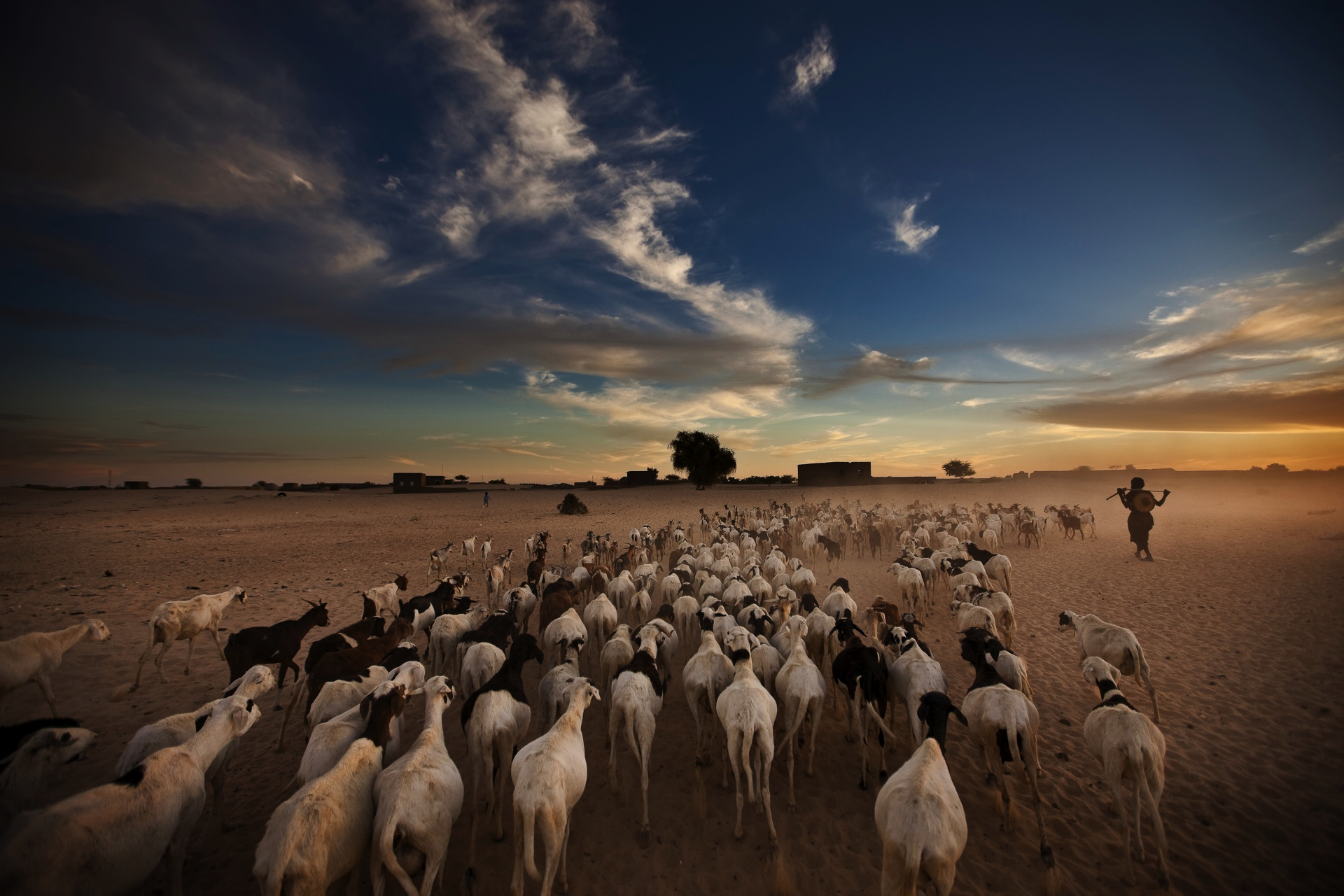
We were halfway to Timbuktu when we heard the pop.
It was just after 3:45 p.m. on Saturday, and we'd been bouncing along the unpaved, deeply-rutted dirt road which leads to Timbuktu for nearly eight hours. There were three other people in the Mitsubishi 4x4: my fixer Kodji, a sports announcer for Mali's state-owned television station; Adama, a perpetually smiling but almost entirely silent driver; and Peter Tinti, a journalist friend who'd come to Mali five years ago as a Peace Corps volunteer and never really left.
The four of us were racing to catch the final ferry of the day to Koriume, a tiny village on the other side of the Niger River. From Koriume, Timbuktu would be an easy 20-minute drive. The problem was that the last ferry was supposed to leave at 5 p.m., and we were still roughly 70 kilometers away from the river crossing. A flat tire was literally the last thing we needed. Cursing in at least two languages, we got out of the SUV, crouched down in the dirt, and tried to help Adama change the tire as fast as he possibly could.
We'd set out at 8:30 that morning from Sevare, a hub of sorts for reporters journeying to northern Mali, the site of a low-level guerrilla war pitting French, Chadian and Malian troops against the trio of Islamist militant groups which seized control of the region last year. The French forces leading the push have nominally reclaimed Timbuktu and the region's other major cities, but the extremist groups – Al Qaeda in the Islamic Maghreb, better known as AQIM; Ansar Dine; and the Movement for Unity and Jihad in West Africa or MUJAO – have promised to dig in for a long fight. We were heading north to gauge the seriousness of that threat.
Our trip traversed both the geography and the chronology of the war, but in reverse order. The French-led intervention was prompted by fears that Sevare and its sister city, Mopti, would fall to Islamist control. The extremists were instead halted at Kona, a small town about 50 kilometers north of Sevare. We had driven through Kona that morning, stopping once to walk through a deserted compound which had once served as an extremist base. The ochre-colored walls were pocked with bullet holes, and a half-dozen Islamist armored vehicles and jeeps had been reduced to blackened, melted husks. The extremists had fled so quickly that discarded shirts and pants littered the courtyard, rustling in the slight breeze.
We continued north to Douentza, the final town before the turn-off towards Timbuktu. We stopped at a Malian army checkpoint just outside the city and handed the soldiers our written authorizations for the journey north. The troops gave the papers a quick glance and passed them back. They were much more excited to talk to Kodji, whom they recognized from TV.
The road shifted from concrete to dirt as soon as we left the checkpoint. Adama maneuvered us around and between potholes two feet wide and two feet deep. Every so often he'd hit one straight on, sending us bouncing up off our seats. "Sorry," he'd say, smiling, before turning back to the road.
We drove for hours, passing isolated villages, sleeping camels, and trucks that had slid off the road and gotten beached in mounds of sand. We would have made the ferry crossing by 5 if not for the flat tire, but we still managed to make it there by 5:20. There was a line of waiting SUVs parked on the road, a clear sign that the ferry hadn't come yet. We soon got word, though, that it wasn't going to come at all. The ferry operator had apparently decided not to cross the river that day, which meant there was no way to get our SUV to Koriume. We decided to leave the car there overnight and instead take a "pinasse" – a motorized skiff with tapered sides, three wooden benches, a thatched floor and a rather unfortunate name – across the Niger.
The sun was setting as we stepped off the boat, grabbed our luggage, and walked into Koriume. There wasn't much to see. A handful of stores with corrugated steel roofs offered snack food and warm soda. A few yards away, a row of women sitting on woven blankets sold plastic bags of popcorn and completely taste-free donuts (we learned that the hard way after buying some).
We couldn't find a ride into Timbuktu, so Peter – who speaks fluent French – walked over to a group of Malian soldiers and asked if they could give us a lift. To our surprise, the troops said they'd be happy to as soon as their shift ended. We sat with the soldiers in the gathering darkness, sharing a communal dinner of grilled fish and salad, until they got permission to leave. At 8:30, 12 hours after we left Sevare, they threw our luggage into the bed of their camouflaged pick-up truck, bundled us into the back seat, and drove off towards Timbuktu.
On the approach into the city, we passed a makeshift roadside billboard the Islamists had erected when they controlled the area. It used to read "Welcome to Timbuktu, City of Sharia," but locals covered the words with streaks of black paint as soon as the extremists were kicked out. Squinting, I could barely make out "Timbuktu." The rest was lost to the darkness.






